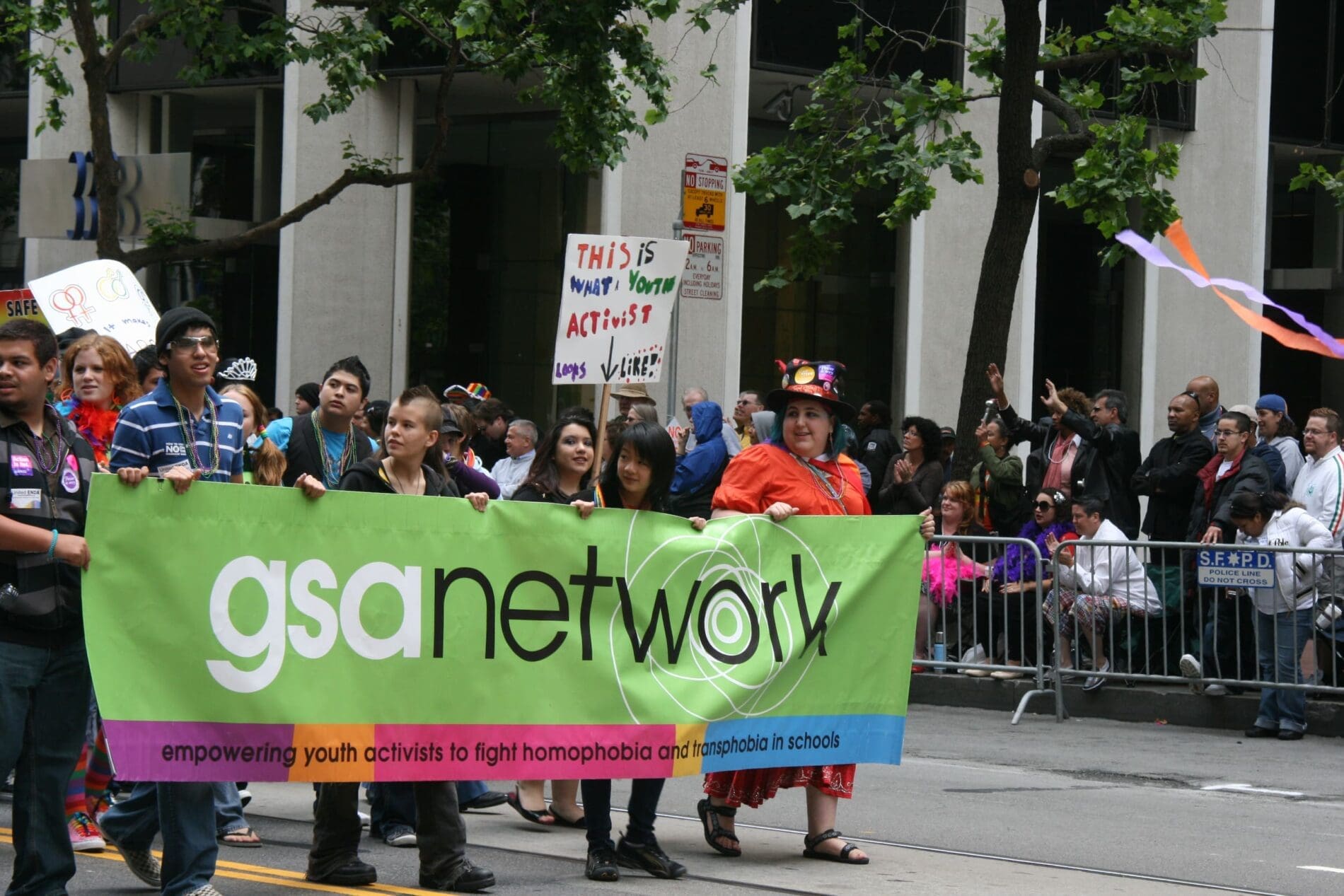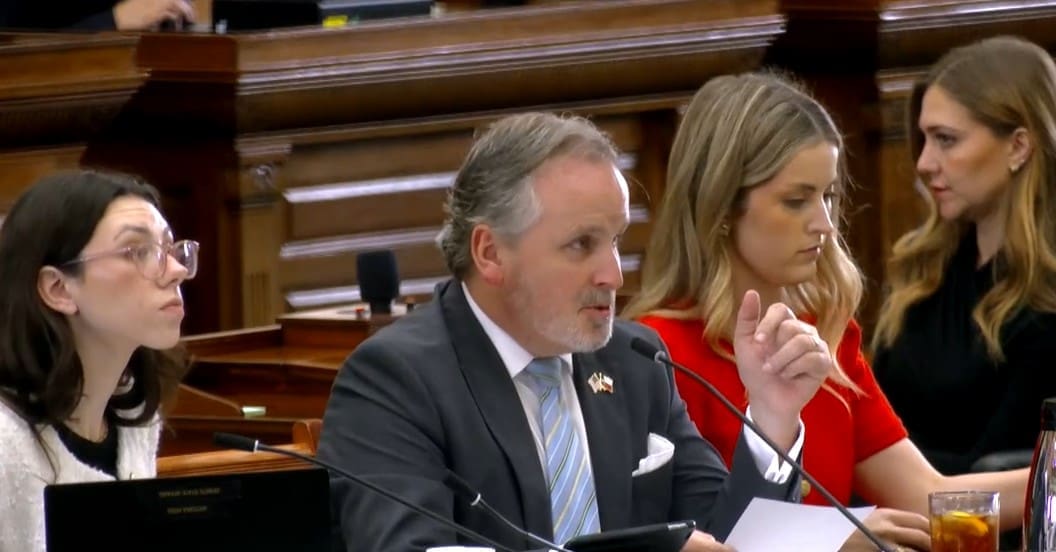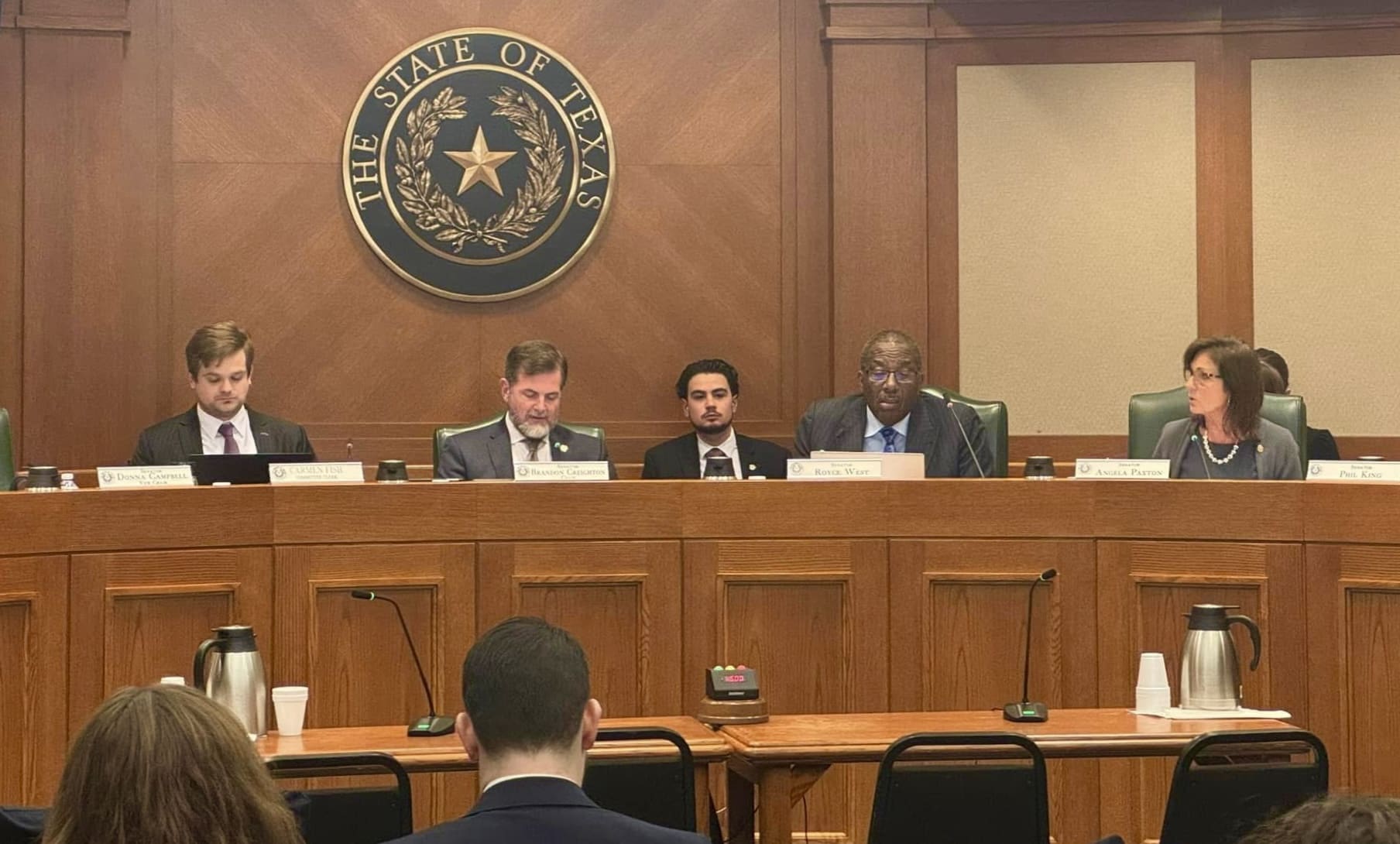For years, Californians have fled their state. Many of these refugees came to Texas to enjoy a life more free from government encroachment.
Aileen Blachowski is one of the transplants. She was a parent education advocate in California, something that didn’t change when she moved to Texas. Here, she works with the citizen group Texas Education 911. Their mission is “to drive the conversation” to fix Texas public schools urgently.
Ex-Californian parents hoping for a less politicized education system enrolled their children in Texas’ government schools. But people aren’t the only things that have migrated from the gold-rush state. Certain school clubs common there are now in the Lone Star State.
They’re called Gay Straight Alliance clubs, or Genders and Sexualities Alliance clubs. The GSA Network website claimed these clubs were once “safe spaces for LGBTQ+ youth in middle schools and high schools.” However, the mission has crept from “safe space” to being “vehicles for deep social change related to racial, gender, and educational justice.”
That alone is alarming. But Aileen uncovered more during her time in California. In 2018-2019, parents in Orange County came to her after their sixth grade daughter had attended one of these clubs. It used a different branding at the time. It called itself “We the People GSA.” Thinking it was a history club, this sixth grade girl was shocked by what this club exposed her to.
“[She] went to the We The People club only to find out that they were actually talking about sexual fetishes and techniques. Things like BDSM,” Aileen said. “She had no idea what she walked into.” The girl didn’t tell her mother right away. She felt pressured to attend again, and after the second visit, she told her mother. “The daughter was actually traumatized by all this fetish conversation,” Aileen said. “Those clubs are, [a] majority [of them], established really as grooming grounds, frankly.” She recalled a widely shared video on social media where California teachers were caught saying they targeted certain types of students to invite to GSA clubs. If a student felt awkward or thought he or she may be homosexual, then teachers would invite that student. “I don’t know if every club leader is doing that. But we have definitely seen evidence of that being true.”
Kids already struggle with multiple issues, be it loneliness or sexuality. Aileen said such struggles can make students vulnerable to the call of these clubs. While students may feel welcomed, for those who run these clubs, the students’ vulnerabilities are “opportunistic.”
These clubs are marketed as student-led, but the reality is far different. “Every club in a school has to have a faculty advisor,” Aileen said. A 2021 recording of a GSA club at a Dallas ISD school for Pre-K to Grade 6 supported her assertions. The recording indicated an adult male led the meeting. He told club members “transgender means … being born male, if I felt inside that I was meant to be a woman, then I could make the transition and become a woman.”
Texas does not need such “opportunistic” and predatory environments. Already, the state is overwhelmed with reports of sex abuse in our government schools. Aileen spoke with a former investigator with the Collin County Sheriff’s Department. According to him, whether it’s educator sexual abuse or child-on-child sexual abuse, it’s happening everywhere. “The most common thing now [is] that we have these very young predators, and they are [preying] on other very young children. This is the outcome of years and years [of] thinking that somehow sexualizing children was a good idea. These are the very dark fruits of those efforts,” Aileen said. “We have an epidemic level of sex abuse in our schools and sexual exploitation in our schools.”
Even so, GSA clubs are here.
Austin ISD
Much is made about how Texas is different from other states. Yet an inspection of one of its school districts found we may share more with our western sibling than many Texans would prefer.
Austin ISD is not known for being conservative. It’s pushed the LGBT ideology to minors. The district held “Pride” events in March 2024.
But that was just the front page. In November 2017, the Austin ISD Department of Research and Evaluation published a report titled “Transgender Students’ School Perceptions and Experiences.” Department employees made a series of recommendations. One was “making sure each middle and high school has an active and supported Gay-Straight Alliance” club.
In fact, the writers showed a focus on middle schoolers. Also clear was that this recommendation would be district-led.
“Work should be done to ensure that every existing GSA is supported by administration, and that they are able to continue as active and effective clubs,” the writers stated. “Also, although no middle school at AISD is listed as having a GSA, 54% of the students who identified as transgender were in middle school. A GSA should be created and supported in each AISD middle school.”
When Brady Gray, president of Texas Family Project, heard that, it told him these clubs are Austin ISD’s priority, not educating or protecting kids. “The priority is indoctrination. The priority is destruction,” he said. “There’s no evidence to support that any of this stuff is beneficial to [a minor’s] development in any way.” Rather, he said this ideology is destructive to kids and increases suicide rates. “It’s evil in the purest form.”
Time has passed since that 2017 report. Austin ISD published another report in August 2021. Despite the recommendations in the 2017 report, the 2021 update said that “gender-diverse” students in grades 6 through 11 had “lower quality relationships” with their peers and school staff. The report also showed these students had “lower academic engagement,” “lower academic persistence,” “lower self-efficacy, received more bullying than other students,” and had a “lower sense of safety at school.”
In other words, the 2017 plan failed.
Texas Scorecard asked Austin ISD about their 2017 GSA recommendation for more GSA clubs. No response was received before publication.
That’s no surprise to Emelie Schmidt. Texas Scorecard’s May 4 investigative report dived into her story about how Port Neches-Groves ISD disobeyed her mother’s wishes and encouraged Emelie’s belief that she was male. Emelie said lower academic performance and poor relationships are common when a child believes he or she is trans. One can also become hyper-sensitive and view any minor act as being bullied.
Upon hearing of Austin ISD’s 2017 plan to push GSA clubs, Emelie agreed with Aileen’s sentiments. “It sounds a lot like grooming.”
These clubs are listed as one of the initiatives of Austin ISD on its website.
Conclusion
Sexualization has become a growing shadow in Texas’ government schools.
Once, sexualization activists argued that government schools needed to teach sexual education. They argued minors needed to learn about safe sex. This was supposed to help them avoid bad choices. But instead of it being one of many subjects, sex has become the main subject.
Historically, state lawmakers have been deferential to the education industry. As of 2024, that posture is slowly moving towards holding these institutions accountable. Alongside has been a swelling tide bringing school choice closer to reality. Porn in schools became one of the critical mass events that shifted the ground. The acquisition and distribution of such hazardous materials by institutions entrusted with teaching minors angered and activated their parents. Outraged parents led a movement that repositioned the state legislature’s posture towards government education.
But it’s not enough. Fort Worth ISD is bringing some objectionable books back to their libraries. The mudslide of reported sexual abuse of students by school employees has continued to grow.
Steadily, the advertised purpose of education has been “dramatically abandoned” by government schools. That’s according to Gray, president of Texas Family Project. He shared “abysmal” numbers from Texas government education. Only 27 percent of eighth graders in government schools are adept at math. That number falls to 24 for reading. “We no longer have public schools that are teaching kids how to read and write and do math,” he said. “In place of teaching kids lost skills, teaching them things that they’re going to need for the rest of their life, instead of doing that … we are teaching kids about nonsense, idiocy, and gender ideology.”
For Aileen Blachowski, she doesn’t think schools should have these clubs. “It’s a parent’s place to come in and support that child in the best way that matches with that family’s values.”
She advised parents to keep an open dialogue with their children. Require that your kids inform you if they join any clubs and bring you all information about it, including which teacher is facilitating it. Then ask that teacher if you can visit the club. “If you’re not invited to drop in as a parent, then your child doesn’t need to be there.”
If you or anyone you know has encountered a GSA club in your school district, please contact rmontoya@texasscorecard.com
No ads. No paywalls. No government grants. No corporate masters.
Just real news for real Texans.
Support Texas Scorecard to keep it that way!





